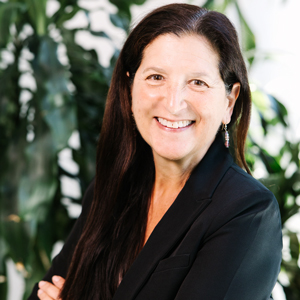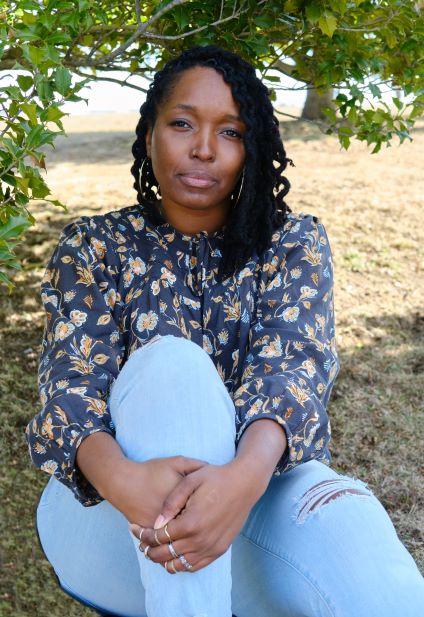Master of arts
School Counseling
Provide culturally responsive support to K-12 Students!
Our goal is to help you become a school counselor who can provide culturally responsive services to address the academic, social/emotional, and career development needs of K-12 students.
According to the American Counseling Association (ACA), professional counseling is a professional relationship that empowers diverse individuals, families, and groups to accomplish mental health, wellness, education, and career goals (ACA, 2018).
The American School Counseling Association (ASCA, 2023) states, "School counselors are highly educated, professionally certified individuals who help students succeed in school and plan their careers. An integral part of the total education system, school counselors help students form healthy goals, mindsets, and behaviors.”
"School counselors are certified/licensed educators who improve student success for ALL students by implementing a comprehensive school counseling program" (ASCA). The professional school counselor serves as a leader, an assertive advocate for students, a consultant to families and educators, and a collaborator to promote equity and access for all students by connecting their school counseling program to the school’s academic mission and school improvement plan (International School Counseling Association, 2021).
Program Overview
This counselor education program, with a specialty area in School Counseling, trains students in eight (8) core areas: professional counseling orientation and ethical practice, social and cultural diversity, human growth and development, career development, counseling and helping relationships, group counseling and group work, assessment and testing, and research and program evaluation. The School Counseling Program is housed within the School of Counseling, Psychology, and Therapy at Antioch University. The School Counseling Program is offered Online with two one-week long intensive residencies.
Licensure
This program is designed to lead to state licensure.
The Mission of the School Counseling Program
The School Counseling Program promotes professional identity development by encouraging an active and continuous examination of oneself as an individual, as a professional school counselor, and as a social justice advocate. The program is devoted to training students from diverse backgrounds, endorsing the principles of social justice by confronting oppression and injustice, and working with underserved populations. Students are prepared, as professional school counselors, to serve k-12 students, their families, and their communities by providing culturally responsive services to address the academic, social/emotional, and career needs of their k-12 students while advocating to remove barriers embedded in the education and other social systems and to promote mental health and well being for all.
Program Length
The School Counseling Program is designed to be a full-time program, with students entering in the fall or spring semesters. The School Counseling Program typically takes students three to three and a half (3-3.5) years to complete if attending full-time. Students who desire a part-time student status can anticipate approximately four to five (4-5) years to complete the program. You should expect to spend approximately nine hours per week on each course, in addition to 20 hours a week onsite at a school setting when your practicum and internships begin. Students must pass a candidacy review before being authorized to begin practicum. We encourage you to plan your life carefully to accommodate the increased investment of time and energy in your professional education.
Requirements
Total credit hours = 60
- Intensive face-to-face clinical residency (in person)
- Core Courses (13 courses @ 3 credits = 39 credits)
- Practicum & Internships (3 semesters @ 3 credits = 9 credits; Practicum min.100 hrs; Internship 600 hrs; if students live in states with licensure/certification requirements that exceed 600 hours, the program can accommodate that need)
- School Counseling Specialized Courses( 4 courses @ 3 credits = 12 credits)
Additional Program Details
Antioch’s School Counseling Program is offered online with two one-week-long in-person intensive residencies. The Online delivery includes online courses that are both asynchronous and synchronous. Students in Online delivery also have intensive face-to-face clinical components, either in person or virtually.
Practicum introduces you to work in the field with a minimum of 100 hours of service at a site, including a minimum of 40 hours working directly with clients. You learn the policy of the agency and the roles of a counselor. You spend approximately 7 to 10 hours a week in practicum for at least one semester. Before beginning, practicum students must pass a candidacy review assessing their readiness to begin supervised fieldwork. Following practicum, there are two internship semesters in a K-12 setting. You spend approximately 20 hours a week at your school site and provide approximately 300 hours of service each semester, with a minimum of 120 hours of direct service to clients during each internship semester. State requirements for pre-degree internship hours vary. Review your state requirements for more information. Depending upon state requirements, there are many possible positions for practicum sites, which can include community agencies, residential facilities, college counseling centers, city/state social service agencies, and school settings. The Clinical Director and the Practicum and Internship Coordinator will assist you in the process of matching your interests with potential sites in the community. Students are responsible for securing their own internship and for transportation to and from the site.
- Ethical Practice: Students will demonstrate principles and standards of professional ethics in counseling and ethical decision-making informed by social justice.
- Social and Cultural Diversity: Identify strategies needed to address institutional and social barriers that impede access, equity, well-being, and success for clients.
- Human Growth and Development: Students will demonstrate knowledge of lifespan development and the capacity to integrate knowledge of developmental theory into practice.
- Career Development: Identify career development strategies that incorporate a focus on social justice and advocacy.
- Counseling and Helping Relationships: Demonstrate an understanding of theories of counseling and development of case conceptualizations and treatment plans that are underpinned by social justice
- Group Counseling and Group Work: Integrate into their practice of MHC the awareness of the influence of social and cultural contexts on groups
- Assessment and Testing: Students will demonstrate a broad understanding of different types of assessments, the selection and use of assessment tools, client assessment and diagnosis, trauma assessment, and the assessment of self-inflicted harm and danger to others.
- Research and Program Evaluation: Demonstrate and apply their professional identity as a clinical mental health counselor through an individual philosophy of practice grounded in critical analysis, research, and interpretation.
- School Counseling Specialty Area: School counseling students will demonstrate an understanding of foundational knowledge, demonstration of competence in school counseling practice, knowledge of social justice issues, and a focus on culturally responsive services to address the academic, social/emotional, and career development needs of K-12 students.
- Professional Dispositions: From admission through exit, students will demonstrate the attitudes, characteristics, and behaviors defined by the program as characteristics of exemplary counseling professionals.
According to the Bureau of Labor Statistics, the projected percent change in employment from 2022 to 2032 is faster than the average profession... Graduates of the School Counseling Program will have the knowledge, skills, and attitudes required to function as professional school and clinical mental health counselors. They will be prepared for employment in school settings and able to meet certification and licensure standards as school and mental health counselors in most states, through education in a CACREP-aligned program.
Graduates of the School Counseling Program may apply for professional school counseling credentials, recognizing their level of training and experience. Credentials may be granted by national professional boards/organizations or by state regulatory boards. The School Counseling Program recognizes the importance of licensure/certification for professional practice. The legislature/certification in each state establishes the criteria for licensure/certification, and an appointed board determines if an individual's education and experience meet their standards. Our School Counseling Program is consistent with the standards of the representative professional organizations in Ohio. Individual states, many of which base their legislation on professional organization standards, vary as to specific coursework, number of hours of supervised practice, supervisor qualification, and other required criteria. While the department offers coursework and internships that allow students to put together a licensable portfolio, it cannot guarantee licensure/certification. Students will need to verify with their State Board of Education to determine if any additional requirements are necessary to fulfill credentialing. Students with any negative results on a criminal background check should inquire with the state board in advance to determine if the results of their background will hinder their ability to become licensed in their state.
As graduates of a CACREP-accredited program, most students are also eligible to obtain full certification as a National Certified Counselor (NCC) upon graduation after passing the National Counselor Exam offered in April/October of their final year and completing the required applications. See the NBCC website for information on this process. Graduates' self-reported pass rate on the NBCC exam is 80%. Students will learn about the steps to licensure for the state in which they plan to pursue licensure in the Professional Orientation and Ethics course; however, students are responsible for knowing the expectations of the state in which they plan to apply. Students should actively consult their state’s counseling board for the most recent information about professional counseling licensure. Faculty are available to consult with students, and the following websites are helpful when navigating the licensure process: National Board of Certified Counselors, American Counseling Association, American Mental Health Counseling Association, American Association of State Counseling Boards
To locate contact information, available licenses, and required examinations per State, visit the NBCC’s State Board Directory: http://www.nbcc.org/Search/StateBoardDirectory. For information on individual state requirements, see the NBCC State Licensure page
Our School counseling program is CACREP-aligned and actively seeking accreditation.
Faculty Spotlights

Syntia Santos Dietz, PhD
Associate Professor

Cathy Lounsbury, EdD, LCPC
Dean

Taqueena Quintana, EdD
Associate Professor

Dr. Michele Pinellas
Teaching Faculty
Admissions
The School Counseling program values diversity and encourages students of all backgrounds to apply for admission to the program. The faculty strives to create and support an inclusive learning community that meets the different learning styles of students admitted to the program. Students are encouraged to foster relationships with their peers through class discussions and small group activities.
| Program | Term | Deadline |
|---|---|---|
| MA & Certificate in School Counseling | Fall | July 1 |
| Spring | November 1 |
How to Apply
- Complete the online admissions application, including a purpose statement (application essay). This statement should be a well thought out, focused, and organized profile that is no more than four double-spaced pages with 12-point font (Arial or Times New Roman) and provides information regarding the questions below.
- Essay questions:
- We are curious about your previous experiences (e.g., personal, professional, and academic) and would like to know how these experiences have led you toward the choice to apply to the School Counseling Program at Antioch University. Please describe a few of those fundamental experiences.
- Our School Counseling Program is both academically and emotionally rigorous. What challenges, if any, do you foresee encountering during your studies? What forms of support will you use to meet those challenges?
- What is your perception of the role of a school counselor? What are some of your strengths, and what are some of your areas of development around your own social-emotional skills, academic skills, and multicultural awareness?
- What are your professional goals in relation to the School Counseling Program and how will this program specifically help you to reach those goals?
- Antioch University and the School Counseling Program are committed to preparing counselors to be culturally competent and become advocates for social, economic, environmental, and racial justice. How does social justice and becoming culturally competent align with your interest in becoming a counselor?
- Essay questions:
- Current Resume/curriculum vitae (CV)
- Non-refundable $50 application fee
- Submit official transcripts from all colleges or universities where you earned a degree or certificate (A cumulative GPA of 3.0 or higher is preferred)
- Email transcripts to [email protected] or
- Mail them to Antioch University Admissions Office, 900 Dayton Street, Yellow Springs, Ohio 45387
- Two letters of recommendation are required. Recommendations are preferred by people who are in a position to evaluate your professional (e.g., supervisor, colleague) or academic (e.g., faculty) work. The person making the recommendation may not be related to you or a personal friend.
- There are additional requirements for International applicants and applicants without a Bachelor’s degree.
- Interview with the School Counseling Program admissions committee if selected. This interview will be conducted via Zoom (video conferencing).
- Master’s and Certificate Programs do not require the GRE or any other standardized test for admissions. We consider all of your application materials and evaluate your academic potential in a variety of ways.
- Optional: If you do not feel as if your academic transcript(s) reflect your current ability to be successful as a graduate student, please be sure to highlight a plan for being successful in this program.
Official transcripts should be emailed to [email protected] or mailed to:
Office of Admissions
Antioch University New England
40 Avon Street
Keene, New Hampshire 03431-3516
All application materials submitted become part of an applicant’s file and cannot be returned.
LEARN MORE
Tuition
| Department/Program Name | Tuition Cost per Credit | Total Program Credits |
|---|---|---|
| MA in School Counseling | $840 | 60 |
| Certificate in School Counseling | $840 | 18 |
A college education is an investment in your future. Let us help you understand the costs and explore the resources available to help make your college education even more affordable. The majority of AUNE students finance their education through some form of financial aid. You may not be sure which federal, state, public, and private aid packages – such as loans, scholarships, and grants—are right for you. Our staff is here to help you so you can focus on what’s most important: beginning your academic program at AUNE.

Start your Antioch Journey
Take your next step - talk to our admissions team to find the right program for you.
